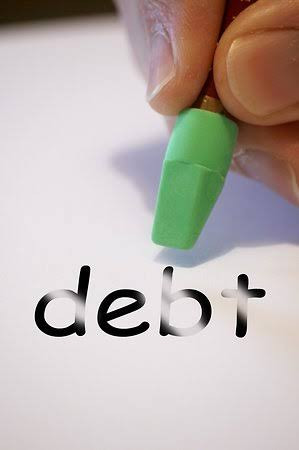In the midst of China establishing personal bankruptcy rules because of the increase in household debt-to-gross domestic product ratio, a court in Wenzhou, Zhejiang province, the cradle of mainland's private-sector economy, approved of the first personal bankruptcy agreement which opened the gates of more cases like this.
The court ruled that a local man surnamed Cai only has to repay 1.5 percent of his 2.14 million yuan (US$300,000) debt.
Cai, whose monthly household income is around 8,000 yuan (US$1,120), has to only pay 32,000 yuan (US$4,480) over the next 18 months.
Cai has a 1 percent equity stake in a machine tool company, uses a damaged motorcycle and has a very small amount of money in the bank reports Wenzhou Daily.
Cai's wife is contributing a large medical bill as she has been suffering from high blood pressure and kidney disease for many years.
Official data shows that just over 1 percent of the total population, or 14.43 million people in China, "have lost credibility" and were put on a blacklist because of unpaid debts.
What is getting implemented in China's current bankruptcy system framework is the Enterprise Bankruptcy Law, adopted by the Standing Committee of the Tenth National People's Congress on August 27, 2006, which only encompasses enterprises.
The landmark decision happened during these times that the government is putting together a legal framework to handle the growing number of people unable to repay debts.
The household debt-to-gross domestic product ratio increased from 11 percent in 2006 to 53.6 percent at the end of the first quarter of this year.
In October 2018, China's Supreme People's Court said that the country's court system should "study and push" for a personal bankruptcy system.
In July 2019, China's National Development and Reform Commission, Beijing's economic planning agency, together with 12 other ministries said that China will push for individual bankruptcy rules.
The court ruling also specified that Cai can resume his credible social status after three years from paying back the agreed amount.
Cai cannot travel in business or first class even on the high-speed railway network, serve as the legal representative for any business and must seek special permission to travel out of the country.
Likewise, if Cai's household income goes over 120,000 (US$16,800) after six years of paying back the mandated 1.5 percent, he will need to use half of the money above that amount to pay his creditors.
Wenzhou Daily pointed out that Cai's case offered "judicial practice" to support the establishment of China's personal bankruptcy system.
Still, personal bankruptcy is controversial because many are concerned this can get used as an excuse for not repaying debts.





